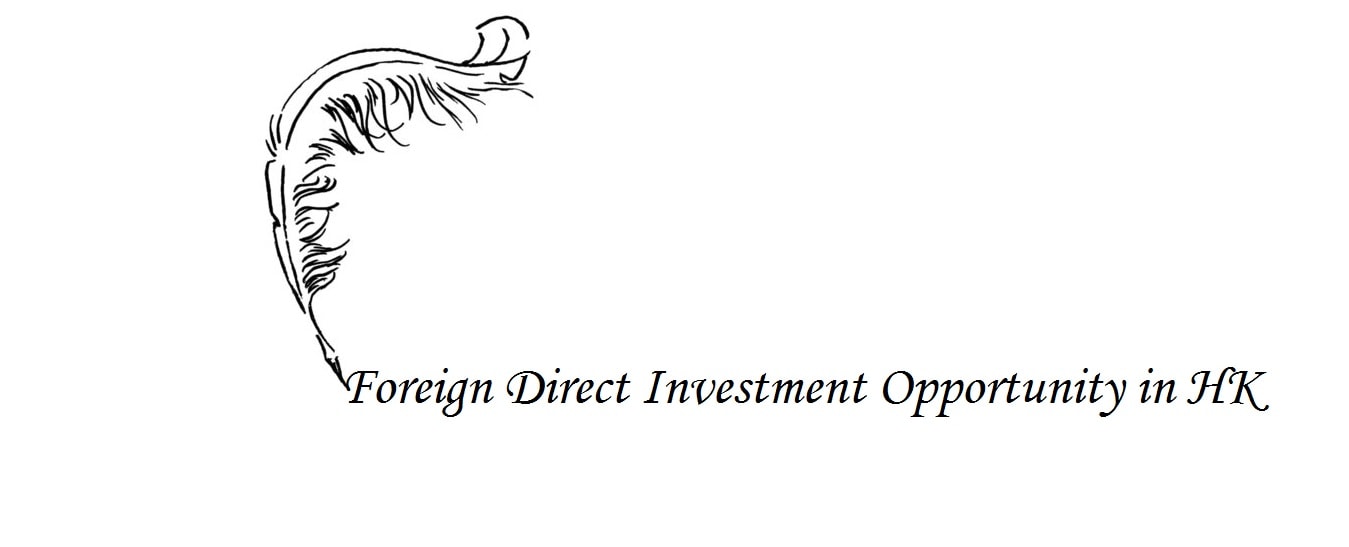
Foreign direct investment (FDI) is an important factor in any economy. Most countries with a very good economy will attract a lot of FDIs. It helps to create new business opportunities in the country as well as creates numerous jobs for the locals. Hong Kong’s reputation for being the focal point of the business industry in the entire Asian region has attracted a lot of FDIs in the past couple of years. With the strong government support, astounding low corporate tax rates, and the strategic location of the country, Hong Kong seems to be the ideal place to conduct businesses for people from all around the world. It is no surprise that so many foreign direct investments are being injected into the Hong Kong economy.
Based on the 2016 World Investment Report published by UNCTAD, Hong Kong ranked 2nd in terms of the largest recipient of FDI in the whole world in the year 2015. They have ranked ahead of China and came second only to the USA. In the list of the 20 largest countries in the world, Hong Kong was one of the 9 developing countries mentioned in the report.
The flow of foreign direct investments in Hong Kong has seen a steady rise since the year 2010. Compared to 2014, the FDI rose by a staggering 53% in the year 2015. The figures for the FDI in 2015 stood at a mammoth USD 175 billion. The reasons for such a high amount of FDI can be contributed to factors such as the strategic position of Hong Kong; it serves as a gateway for entering the Chinese market and trade with them. It’s status as a free port, thereby allowing lots of cargos with no additional costs, the simple and effective tax system, along with the great tax rates, and finally, Hong Kong’s great infrastructure and judicial security.
Why chose Hong Kong?
Before one goes ahead and injects all their money into the economy of Hong Kong, they may have several questions regarding why they should choose Hong Kong. While we did mention a few of the points earlier in this article, there are other strong factors that make Hong Kong the best option for FDIs.
In terms of exports and services center’s Hong Kong is an international leader in the global market. The largest production base in the world, China is located right next to Hong Kong. Therefore, any sort of company with a decent share of the Hong Kong market can easily enter the Chinese market as well. In other words, one can fully utilize the large consumer base that China has through the Hong Kong routes.
Whenever FDIs are the topic of conversation, the stability of the economy of the country comes into play. For Hong Kong that is not a problem. Their economy is one of the most stable and sound economies in Asia and that is due to their efficient financial and banking system.
Along with all that, the transparency of local institutions and political stability are key factors as to why Hong Kong is such a perfect place to conduct your business and deserves all the FDIs they have been getting. Hong Kong also has an abundant number of qualified human resources. They are both educated as well as highly skilled. In 2003, the Capital Investment Entrant Scheme (CIES) was launched by the Hong Kong Government. This basically allowed foreign investors to apply for residency in the country by making capital investments. While it was quite successful in the beginning, it did come to an end in January 2015.
Government Measures to encourage FDIs
The best thing about investing in Hong Kong is that their government looks to encourage foreign investors to do so. They have gone on to make Hong Kong a free territory in terms of FDIs. The taxation policy is very favorable with their rates being one of the lowest in the world and the overall lowest in the whole of Asia. Setting up businesses in Hong Kong is very easy. All you need to do is register your business with the government and appoint a director and a company secretary. The company director does not have to be a Hong Kong resident and you can have full control of your company.
The downside of investing in Hong Kong?
As it stands there isn’t much that can be a downside for investing in Hong Kong. However, they do have a few negative points which can be worth considering. These include the cost of real estate and workplace in Hong Kong. Offices and shops have a very high rent in Hong Kong and sometimes finding the right place can be very difficult. Real estate is not the only costly thing in Hong Kong. Due to the high education and skillsets, the cost of labor is also very expensive. Compared to Hong Kong, the labor cost in Mainland China and India are far lesser.